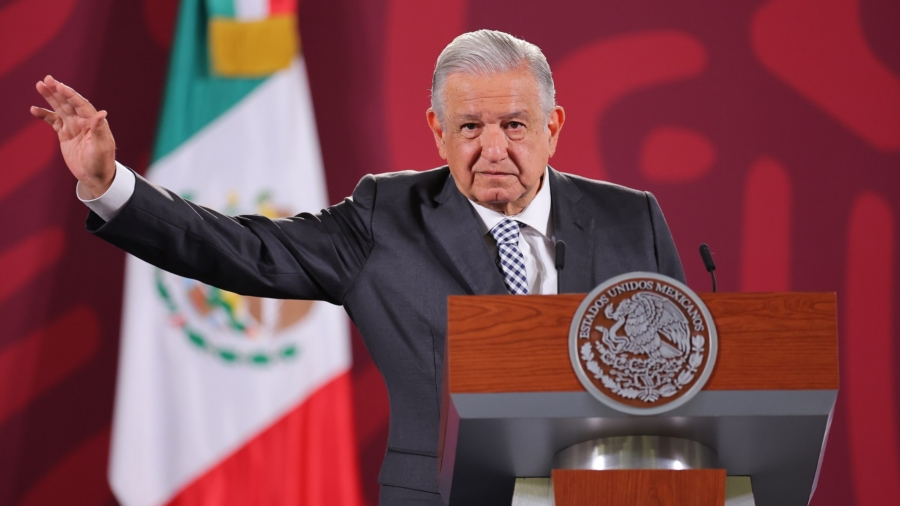The government of Mexico is suing five U.S. gun sellers in U.S. courts in Arizona, claiming the U.S. businesses are illegally engaging in arms trafficking for cartels in that crime-ravaged country.
The new lawsuit comes after a federal judge in Massachusetts threw out a $10 billion lawsuit on Sept. 30 that Mexico brought against arms makers including Smith & Wesson that claimed U.S. companies deliberately undermined that country’s draconian gun laws by making “military-style assault weapons” that found their way to drug cartels and criminals.
The judge in that case found that the Protection of Lawful Commerce in Arms Act (PLCAA) of 2005 “unequivocally bars lawsuits seeking to hold gun manufacturers responsible for the acts of individuals using guns for their intended purpose.” The PLCAA was enacted to protect the industry from frivolous lawsuits filed against businesses related to crimes they did not commit.
Mexico is appealing the dismissal, as The Epoch Times reported.
Critics say Mexico is exploiting U.S. laws in an effort to cripple the U.S. firearms industry and weaken the Second Amendment protections Americans enjoy.
The new legal action (pdf), Estados Unidos Mexicanos v. Diamondback Shooting Sports Inc., court file 22-cv-00472, was filed in U.S. District Court in Tucson, Arizona. Apart from Diamondback, the other defendants are SNG Tactical LLC, Loan Prairie LLC doing business as The Hub, Ammo A-Z LLC, and Sprague’s Sports Inc.
The government of Mexico issued a press release claiming the Arizona-based gun dealers “systematically participate in arms trafficking, including of military-style weapons, for criminal organizations in Mexico” by engaging in “sales to straw purchasers and sales meant for arms smugglers.”
The lawsuit “is part of a multifaceted strategy to stop the avalanche of guns into Mexico, particularly assault weapons, which equip criminal groups and lead to bloodshed in the country.”
According to Mexico, the five stores it is targeting are “the Arizona dealers whose guns are most frequently recovered in Mexico.”
“Defendants choose to sell guns using reckless and unlawful practices, despite the foreseeability–indeed, virtual certainty–that they are thereby helping cause deadly cartel violence across the border,” the legal complaint states. “Defendants engage in these reckless and unlawful actions because it makes them money. This lawsuit intends to hold them accountable, and make them stop.”
The press release states that the lawsuit “in no way challenges the Constitutional right of U.S. citizens to bear arms, nor the right of stores to sell their products responsibly and lawfully. The lawsuit addresses a cause shared by both countries, whose citizens suffer from illicit firearms practices.”
Mexico is arguing that the sellers “do not comply with required safeguards; cause foreseeable damage; use misleading and tendentious advertising; sell guns that are turned into automatic weapons; cause a disturbance of public order, and violate state and federal laws, causing enormous damage in Mexico.”
Jonathan Lowy of U.S-based Global Action on Gun Violence is part of Mexico’s legal team. Lowy previously worked for another anti-gun group, the Brady Campaign. Global Action has filed paperwork with the U.S. Department of Justice to register as agents of Mexico under the Foreign Agents Registration Act, Politico reported on Oct. 17. Lowy refused to tell Politico who is funding his group.
Larry Keane, Senior Vice President and General Counsel of the National Shooting Sports Foundation, an industry group, told gun news website The Reload earlier this month, that Mexico’s legal efforts against the U.S. firearms industry were “misguided and baseless.”
“The crime that is devastating the people of Mexico is not the fault of members of the firearm industry, that under U.S. law, can only sell their lawful products to Americans exercising their Second Amendment rights after passing a background check,” Keane said.
Licensed gun dealers and manufacturers in the United States should not be held responsible “for Mexico’s unwillingness and inability to bring Mexican drug cartels to justice in Mexican courtrooms,” he said.
From The Epoch Times

